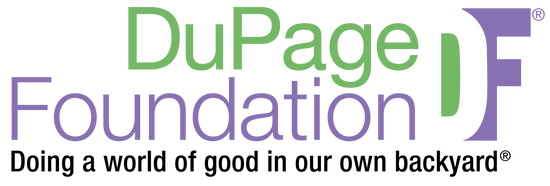One advantage of giving through DuPage Foundation is flexibility. We offer several tax-effective ways for you to make meaningful charitable gifts. The following types of assets can be contributed to create or add to a Foundation fund:
Cash
Qualifies for the maximum allowable income tax deduction.
Marketable or Closely-Held Securities
May be given directly, allowing you to deduct their current market value as a charitable contribution and avoid capital gains tax on the appreciation.
Real Estate
It may be given at its current market value, allowing a full deduction and avoiding capital gains tax on the appreciation.
Life Insurance
The simplest way to donate life insurance is to designate DuPage Foundation as a policy beneficiary. You can also transfer ownership of a paid-up policy, donate policy dividends, or name us as a policy’s designated owner and beneficiary, making annual tax-deductible gifts to us in the amount of any required premium. Under this arrangement, the Foundation would pay the annual premium.
Retirement Plans and Qualified Charitable Distributions (QCDs)
Donors can make contributions from an IRA or other retirement assets such as a 401(k), Keogh, or 403(b). In 2024 donors 70½ and older can also make tax-free Qualified Charitable Distributions (QCDs) of up to $105,000* per individual or $210,000* per married couple from their traditional IRAs (*amounts are indexed annually for inflation). For Donors 73 and older, QCDs can count toward their Required Minimum Distributions (RMDs) while lowering their Adjusted Gross Income. Distributions to any Foundation fund except donor-advised funds will qualify, but must be made directly from the donor’s IRA account.
Business Interests, Including Partnerships and Interests in C Corporations, S Corporations, and LLCs
Contributions of privately-held business interests can make highly tax-efficient gifts. You may receive a charitable deduction for the full fair market value of the donated assets and avoid capital gains tax that would be incurred if the asset was sold. Gifting such assets has requirements and rules that must be followed. Consult your advisors.
Transfer from an Existing Private Foundation
Administering a private foundation under IRS rules can be burdensome and expensive. Transferring the assets into a donor-advised fund at DuPage Foundation provides a simpler, cost-effective alternative. Donor-advised funds can also be set up at the Foundation to work as a side-car to a private foundation to help facilitate grant anonymity when desired, provide support in the identification and vetting of charitable opportunities, and to provide the potential for more favorable tax-deductibility on new charitable gifts.
Charitable Gift Annuities
In exchange for cash or property, the Foundation pays the donor or beneficiary guaranteed fixed payments for life or a term of years. The size of the payments depends on age; however, a portion may be tax-free. The gift portion of the annuity will be tax-deductible.
Charitable Lead Trusts
Trusts provide income to a Foundation fund for a set number of years, the lives of individuals, or a combination of both as specified by the donor. At the end of that time, the remaining principal of the trust and any accumulated appreciation is distributed to children, grandchildren, or other beneficiaries, often with significant tax savings.
Charitable Remainder Trusts
Donors receive income for life or a number of years. At death or term expiration, the remainder passes to the Foundation for the donors’ charitable goals.
To request a copy of our gift acceptance policy, contact Kait Balsewicz, director of donor & community engagement, at 630.598.5292 or kait@dupagefoundation.org.


